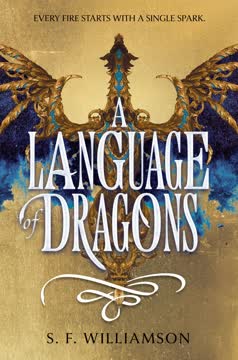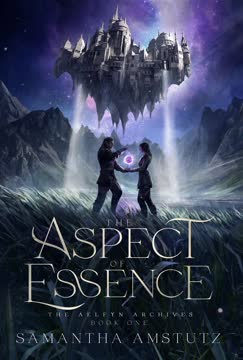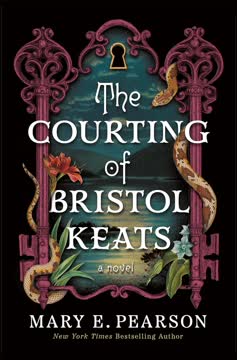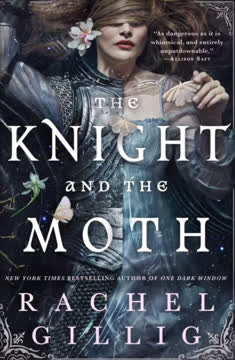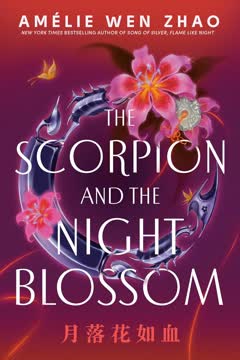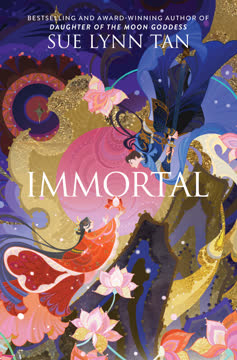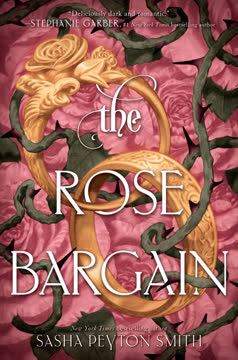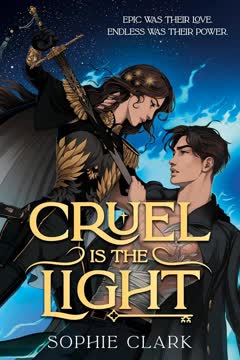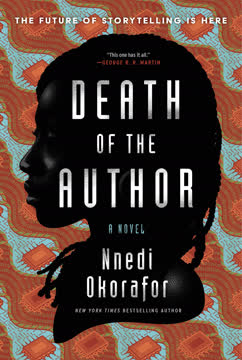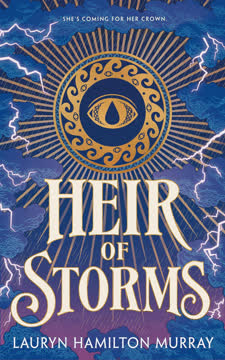Plot Summary
Draconic Dreams and Divisions
Vivien Featherswallow wakes from a dream in a dragon tongue, her life shaped by the rigid class system of an alternate 1920s London where humans and dragons coexist under a fragile Peace Agreement. Her family, ambitious and scholarly, is Second Class—one step from privilege, one misstep from ruin. Vivien's hopes rest on her linguistic talents and a coveted apprenticeship at the Academy for Draconic Linguistics. But the city simmers with unrest: protests, whispers of rebellion, and the ever-present threat of demotion to Third Class. The memory of her best friend Sophie's recent fall from grace haunts her, a reminder of the system's cruelty and the personal cost of survival. As Vivien prepares for a pivotal dinner with the Academy's chancellor, the boundaries between loyalty, ambition, and guilt begin to blur.
The Examination's Price
Vivien's daily life is a balancing act between academic ambition and the ever-present fear of failure. The Examination, a high-stakes test determining class status, looms over every young person. Vivien's success comes at a cost: Sophie, her closest friend, fails and is demoted, their shared dreams shattered. The guilt of her own complicity—having manipulated circumstances to secure her future—gnaws at Vivien. The class pass, a symbol of privilege, becomes a talisman and a curse. As she navigates the city with her cousin Marquis, the cracks in the Peace Agreement and the class system become more visible, foreshadowing the upheaval to come.
Protest and Bloodshed
A routine day is upended when Vivien and Marquis are caught in a violent protest near a Third Class quarter. The demonstration, meant to challenge the injustices of the class system and dragon-human relations, turns deadly as Guardians of Peace attack the crowd. Vivien witnesses the brutal death of a young girl, her own hands stained with blood. The trauma cements her understanding of the system's brutality and her own vulnerability. The event is quickly erased from her home, but the memory lingers, fueling her fear of demotion and her determination to cling to privilege at any cost.
Dinner with the Chancellor
The long-awaited dinner with Dr. Rita Hollingsworth, chancellor of the Academy, is fraught with tension. Vivien's mother presents her research on dragon dialects, hoping to prove the depth of dragon culture and bridge the gap between species. The conversation exposes the family's immigrant roots, the trauma of the Bulgarian dragon massacre, and the precariousness of their position. Dr. Hollingsworth's probing questions and veiled threats unsettle Vivien, who seizes the chance to plead for an apprenticeship. The evening ends in disaster as family secrets and political dissent surface, setting the stage for betrayal.
Arrests and Betrayals
The Featherswallow home is raided by Guardians, led by Dr. Hollingsworth's duplicity. Vivien's parents and uncle are arrested for suspected civil disobedience and rebellion. Marquis is taken as an adult, while Vivien and her young sister Ursa are left behind, traumatized and alone. The evidence against her family is whisked away, and Vivien is placed under house arrest. The reality of the regime's power and the cost of dissent become painfully clear. Vivien's sense of safety is shattered, and her guilt over past betrayals deepens as she faces the possibility of losing everything.
A Desperate Bargain
With her family facing execution, Vivien resolves to destroy the evidence against them. She entrusts Ursa to Sophie's parents and embarks on a dangerous plan: to enlist the help of a dragon imprisoned in the university library. Breaking in at night, she confronts Chumana, a formidable Bolgorith dragon, and offers a deal—freedom in exchange for burning the Prime Minister's office and the incriminating evidence. The bargain is struck, binding Vivien to a path of rebellion and moral ambiguity. The act sets off a chain reaction, implicating her in terrorism and breaking the Peace Agreement.
The Library Dragon's Deal
Vivien's daring rescue of Chumana is both a triumph and a disaster. She removes the explosive device binding the dragon, and Chumana fulfills her end of the bargain, incinerating the evidence in a spectacular act of arson. But the consequences are immediate: Vivien is arrested, accused of breaking the Peace Agreement, and thrust into the heart of political intrigue. Her actions ignite a civil war, shattering the fragile peace between humans and dragons. The cost of her choices—personal and political—becomes devastatingly clear as she faces imprisonment and the possible execution of her family.
The Codebreakers' Recruitment
In prison, Vivien is confronted by Prime Minister Wyvernmire, who offers her a grim bargain: work for the government as a codebreaker, deciphering the secret language of dragons, or see her family executed. The Department for the Defence Against Dragons (DDAD) is revealed as a clandestine wartime operation, recruiting misfits and criminals with specialized skills. Vivien is joined by Marquis, Sophie, and a cast of outcasts, each with their own secrets and traumas. The promise of redemption and pardon hangs over them, but the true nature of their work—and the stakes—remain shrouded in secrecy.
Bletchley's Misfit Recruits
At Bletchley Park, Vivien and her fellow recruits are divided into teams: Codebreaking, Aviation, and Zoology. The atmosphere is tense, a mix of camaraderie and competition, as they realize only success will save them from punishment or death. Old wounds resurface—Sophie's bitterness, Marquis's idealism, Vivien's guilt. The recruits navigate class tensions, forbidden romances, and the ever-present threat of demotion or betrayal. The work is grueling and mysterious: deciphering dragon echolocation, building dragon-inspired planes, and experimenting with dragon biology. The lines between friend and foe blur as secrets and ambitions collide.
Language, Class, and Rebellion
As the codebreakers delve into the complexities of dragon echolocation, they uncover its true nature: not a simple code, but a living language with dialects, emotion, and power. The government's efforts to control language mirror its oppression of the lower classes and dragons alike. Vivien's research, aided by her mother's theories, reveals the depth of dragon culture and the potential for both connection and exploitation. The recruits grapple with the ethics of their work, the reality of class injustice, and the seductive promise of power. The threat of rebellion grows, both within and outside Bletchley's walls.
The Secret Language of Dragons
Vivien's breakthrough comes with a terrible price. She discovers that dragon echolocation—the Koinamens—is not just a language, but a sacred, emotional bond, unique to each family and capable of healing, hatching, and even killing. The government's desire to weaponize it threatens the very soul of dragonkind. As sabotage, murder, and paranoia spread among the recruits, Vivien is forced to choose between saving her family and protecting a secret that could doom an entire species. The cost of forgiveness—of herself and others—becomes the central question, as past betrayals and present dangers converge.
Sabotage and Saboteurs
The pressure at Bletchley reaches a breaking point. Sabotage, murder, and betrayal stalk the halls: recruits turn on each other, desperate to win the race for survival. Dodie is killed trying to escape; Katherine dies by her own poisoned hand, intended for Vivien. Gideon's desperation leads to violence. The government tightens its grip, and the Prime Minister's nephew, Ralph, becomes a personal threat to Vivien. The lines between government and rebellion blur as spies are revealed on both sides. Vivien's own confession to Sophie—of her role in Sophie's demotion—shatters their friendship, forcing Vivien to confront the true cost of her ambition.
The Cost of Forgiveness
Vivien's journey becomes one of self-reckoning. She confesses her betrayal to Sophie, seeking forgiveness she knows she may never receive. The theme of second chances—embodied by Chumana's own history of violence and redemption—echoes through the narrative. Vivien realizes that forgiveness is not a single act, but a lifelong process of atonement and change. The recruits, battered by loss and betrayal, must decide whether to cling to old wounds or forge new alliances. The possibility of a better world—one where class and species are not barriers—flickers on the horizon, but only if they can find the courage to change.
The Ball and the Betrayal
A lavish Christmas ball at Bletchley becomes the stage for political maneuvering and personal revelations. The government's true intentions are revealed: the study of dragon tongues is to be restricted, and the Peace Agreement is more fragile than ever. Vivien learns of the government's alliance with the Bulgarian dragons, a betrayal that will bring war to Britannia's doorstep. The recruits' brief respite is shattered as the Prime Minister announces a deadly race: only the first to succeed in each category will be pardoned; the rest will face punishment or death. The stakes are now life and death, for themselves and the nation.
The Race for Redemption
As the Bulgarians invade and the Coalition attacks, Bletchley becomes a battlefield. Vivien, Marquis, and their allies race to destroy the government's research, free the dragonlings, and escape. Betrayals and sacrifices abound: Atlas is revealed as a rebel, Dr. Seymour as a double agent, and Vivien must choose between saving her family and protecting the dragons' secret. The final confrontation with Wyvernmire and the Bulgarians forces Vivien to use her knowledge of the Koinamens not as a weapon, but as a means of survival and resistance. The cost is high—lives are lost, friendships broken, and the future uncertain.
The Attack on Bletchley
The battle for Bletchley is brutal and chaotic. Dragons and humans fight side by side and against each other; the sky is filled with fire and blood. Vivien's plan to use the loquisonus machine to control the Bulgarians is a desperate gamble. Atlas is mortally wounded, sacrificing himself to save Vivien. The glasshouse and the government's research are destroyed, but the cost is immense. The survivors—Vivien, Marquis, Sophie, and a handful of others—escape to the rebel stronghold, forever changed by what they have seen and done. The war is far from over, but the old world has ended.
The Choice of Sides
In the aftermath, Vivien and her friends find refuge among the rebels on the Isle of Eigg. The Coalition, battered but unbroken, prepares for the next phase of the war. Vivien is forced to confront the consequences of her choices: the loss of Atlas, the pain she caused Sophie, and the uncertain fate of her family. Forgiveness—of herself and others—remains elusive, but the possibility of change endures. The survivors vow to fight for a better world, one where language, class, and species are not weapons, but bridges. The story ends with hope, tempered by the knowledge of all that has been lost.
Second Chances
Vivien's journey comes full circle. She has lost much—her innocence, her love, her old life—but gained a new understanding of herself and the world. The language of dragons, once a tool of ambition and power, becomes a symbol of connection, empathy, and the possibility of redemption. The survivors, scarred but resilient, look to the future with determination. The war continues, but so does the fight for justice, forgiveness, and a new kind of peace. Vivien's story is one of second chances—not just for herself, but for all those brave enough to change.
Characters
Vivien Featherswallow
Vivien is the novel's protagonist, a gifted polyglot whose life is shaped by the rigid class system and the trauma of past betrayals. Her ambition is both her strength and her flaw: she manipulates circumstances to secure her future, resulting in the demotion and suffering of her best friend, Sophie. Vivien's journey is one of self-reckoning, as she is forced to confront the cost of her choices—both personal and political. Her relationships with family, friends, and dragons are complex, marked by love, guilt, and a desperate desire for redemption. Over the course of the story, Vivien evolves from a self-serving survivor to a courageous, self-aware rebel, willing to risk everything for a better world.
Sophie Rundell
Sophie is Vivien's childhood friend, whose life is upended by her failure in the Examination—a failure engineered by Vivien's ambition. Demoted to Third Class, Sophie endures poverty, violence, and loss, including the death of her boyfriend Nicolas. Her relationship with Vivien is fraught with pain, anger, and a longing for reconciliation. Sophie's journey is one of survival and, ultimately, forgiveness—not just of Vivien, but of herself. She represents the human cost of the class system and the possibility of healing, even after profound betrayal.
Marquis Featherswallow
Marquis is Vivien's cousin and closest confidant, whose wit and charm mask a deep sense of injustice and a longing for change. Initially focused on survival and family loyalty, Marquis becomes increasingly radicalized, recognizing the need to fight for a world beyond personal gain. His relationship with Karim, a fellow recruit, and his willingness to risk everything for love and justice, mark his transformation from privileged bystander to committed rebel. Marquis's journey mirrors Vivien's, as both must choose between safety and solidarity.
Atlas King
Atlas is a Third Class recruit, a seminarian whose faith and compassion set him apart. His relationship with Vivien is marked by mutual attraction, intellectual kinship, and shared trauma. Atlas is a member of the Coalition, working undercover to undermine the government from within. His willingness to forgive, to love, and to sacrifice himself for others makes him both a symbol of hope and a tragic figure. Atlas's death is a turning point for Vivien, forcing her to embrace the possibility of change and redemption.
Dr. Dolores Seymour
Dr. Seymour is the head of Codebreaking at Bletchley, a brilliant scientist whose inventions make the government's exploitation of dragons possible. Secretly a rebel, she sabotages the government's efforts while risking her own life and the future of her unborn child. Her relationship with Vivien is one of mentorship and shared guilt, as both women grapple with the consequences of their actions. Dr. Seymour embodies the moral complexity of resistance, the cost of complicity, and the hope of atonement.
Dr. Rita Hollingsworth
Dr. Hollingsworth is a master of deception, playing both sides in the struggle between government and rebellion. Her role in the arrest of Vivien's family and the recruitment of Vivien herself is ambiguous, driven by a long-term strategy to undermine the regime from within. Hollingsworth's true allegiance is revealed late in the story, positioning her as a key architect of the resistance. Her actions force Vivien to question the nature of loyalty, trust, and the possibility of change.
Chumana
Chumana is a Bolgorith dragon, once a participant in the Bulgarian massacre, now imprisoned and later freed by Vivien. Her history of violence and her quest for atonement mirror Vivien's own journey. Chumana becomes both ally and conscience, challenging Vivien to confront the consequences of her actions and to seek forgiveness—not as a single act, but as a lifelong process. Her knowledge of the Koinamens and her willingness to fight for a better world make her a symbol of hope and the possibility of transformation.
Prime Minister Wyvernmire
Wyvernmire is the embodiment of the regime's cruelty and pragmatism. Her commitment to the Peace Agreement is revealed as self-serving, her willingness to ally with the Bulgarian dragons a betrayal of her own people. Wyvernmire's manipulation of Vivien and the other recruits, her use of family as leverage, and her ultimate failure to control the forces she unleashes make her both a formidable antagonist and a cautionary figure. Her downfall is a testament to the limits of power and the resilience of resistance.
Ralph Wyvernmire
Ralph, the Prime Minister's nephew, is a Guardian whose violence and sadism make him a personal threat to Vivien and the other recruits. His actions—breaking Vivien's arm, torturing prisoners, and ultimately killing Atlas—embody the regime's brutality and the dangers of unchecked power. Ralph's downfall is both a personal and political reckoning, a reminder of the human cost of complicity and cruelty.
Ursa Featherswallow
Ursa, Vivien's young sister, is a symbol of innocence and the stakes of the struggle. Her vulnerability—caught between government, rebellion, and the threat of orphanhood—drives Vivien's actions and underscores the personal cost of political conflict. Ursa's survival and eventual rescue represent the hope for a new generation, one that might inherit a world less divided by class, species, and fear.
Plot Devices
The Examination and Class Passes
The Examination and the class pass system are central plot devices, embodying the novel's themes of privilege, ambition, and fear. They create constant tension, driving characters to betray, compete, and compromise their values. The threat of demotion or execution is ever-present, shaping every decision and relationship.
The Peace Agreement and Dragon-Human Relations
The Peace Agreement is both a symbol of hope and a tool of oppression. Its hidden clauses, history of violence, and manipulation by those in power create a sense of inevitable collapse. The alliance with the Bulgarian dragons and the government's efforts to control dragon language serve as catalysts for war and rebellion.
The Koinamens and Language as Power
The secret language of dragons—the Koinamens—is the novel's central mystery and metaphor. Its complexity, emotional depth, and potential for healing or destruction mirror the possibilities and dangers of communication, empathy, and control. The process of decoding it drives the plot, while its true nature challenges the characters' understanding of themselves and others.
Betrayal, Forgiveness, and Redemption
The novel's emotional core is the cycle of betrayal, confession, and the search for forgiveness. Characters are forced to confront the consequences of their actions, to seek or withhold forgiveness, and to decide whether change is possible. This cycle is mirrored in the larger political struggle, as individuals and societies grapple with the possibility of redemption.
Multiple Points of View and Shifting Alliances
The story's structure—shifting between personal, political, and species perspectives—creates a sense of uncertainty and moral ambiguity. Alliances shift, secrets are revealed, and the line between hero and villain blurs. The use of letters, notes, and secret communications adds layers of intrigue and foreshadowing.
Foreshadowing and Symbolism
Recurring symbols—dragons, class passes, the loquisonus machine, the swallow necklace—foreshadow key events and themes. The motif of second chances, embodied by both humans and dragons, underscores the possibility of change and the cost of inaction.
Analysis
A Language of Dragons is a powerful meditation on language, power, and the possibility of change. Set in a vividly imagined world where class, species, and language intersect, the novel explores the personal and political costs of ambition, betrayal, and forgiveness. Through Vivien's journey—from privileged survivor to self-aware rebel—the story interrogates the systems that divide us and the choices that define us. The Koinamens, the secret language of dragons, becomes a metaphor for empathy, connection, and the dangers of exploitation. The novel's modern resonance is clear: it challenges readers to question the structures of privilege and oppression in their own lives, to recognize the cost of complicity, and to believe in the possibility of redemption. Ultimately, A Language of Dragons is a call to action—a reminder that change begins with the courage to face our own mistakes, to seek forgiveness, and to fight for a world where language is not a weapon, but a bridge.
Last updated:
Review Summary
A Language of Dragons received mixed reviews. Many praised its unique concept, political themes, and dragon worldbuilding. The main character Vivien was controversial, with some finding her frustratingly naive while others appreciated her character arc. Readers enjoyed the linguistic aspects and dark academia vibes. However, some felt the romance was underdeveloped and the pacing uneven. The ending left many wanting more, uncertain if there would be a sequel. Overall, it was seen as a promising debut with room for improvement.
